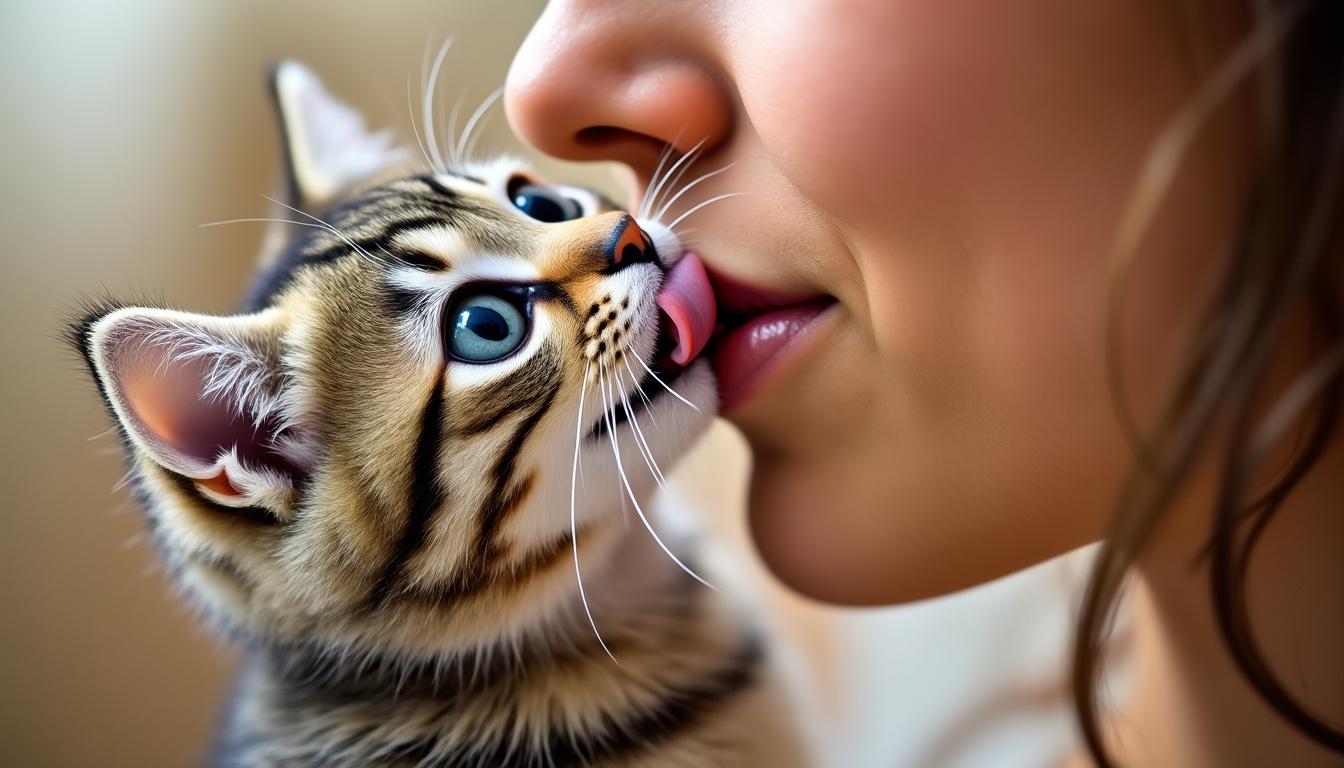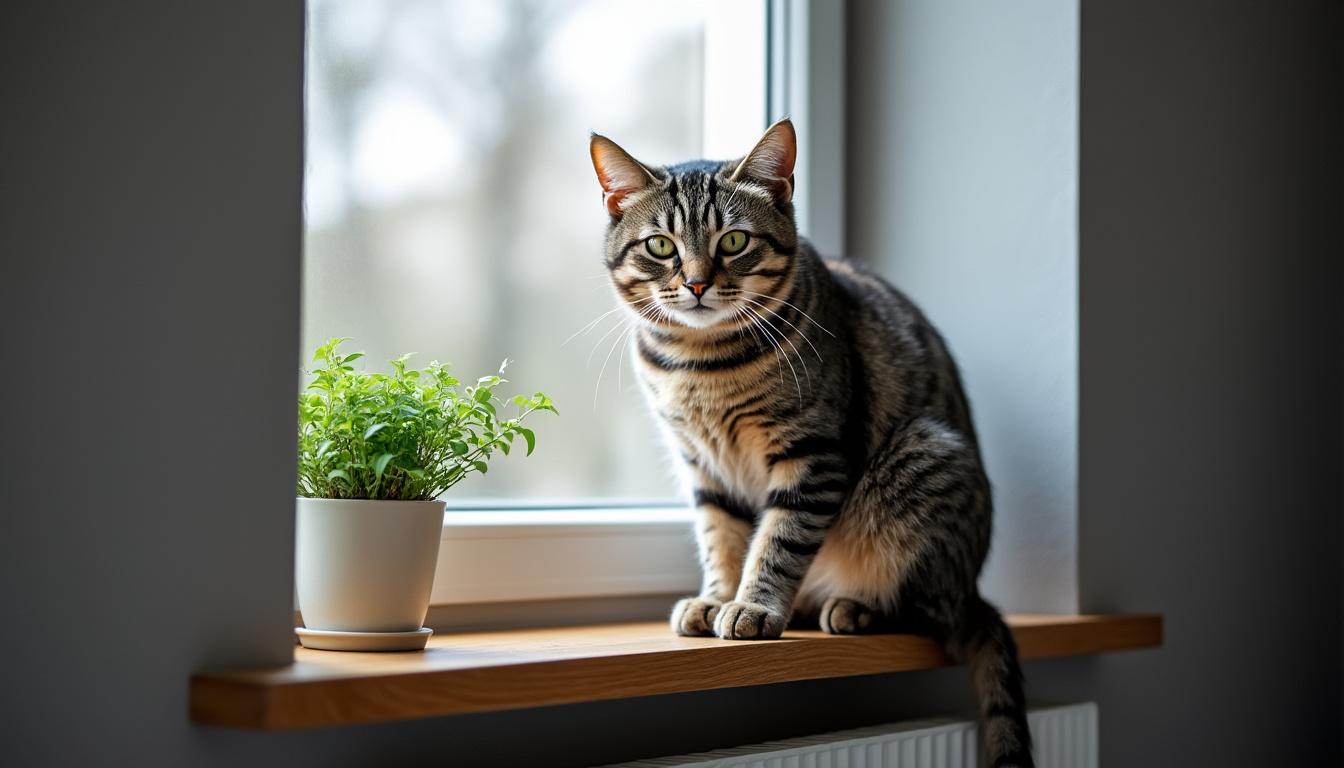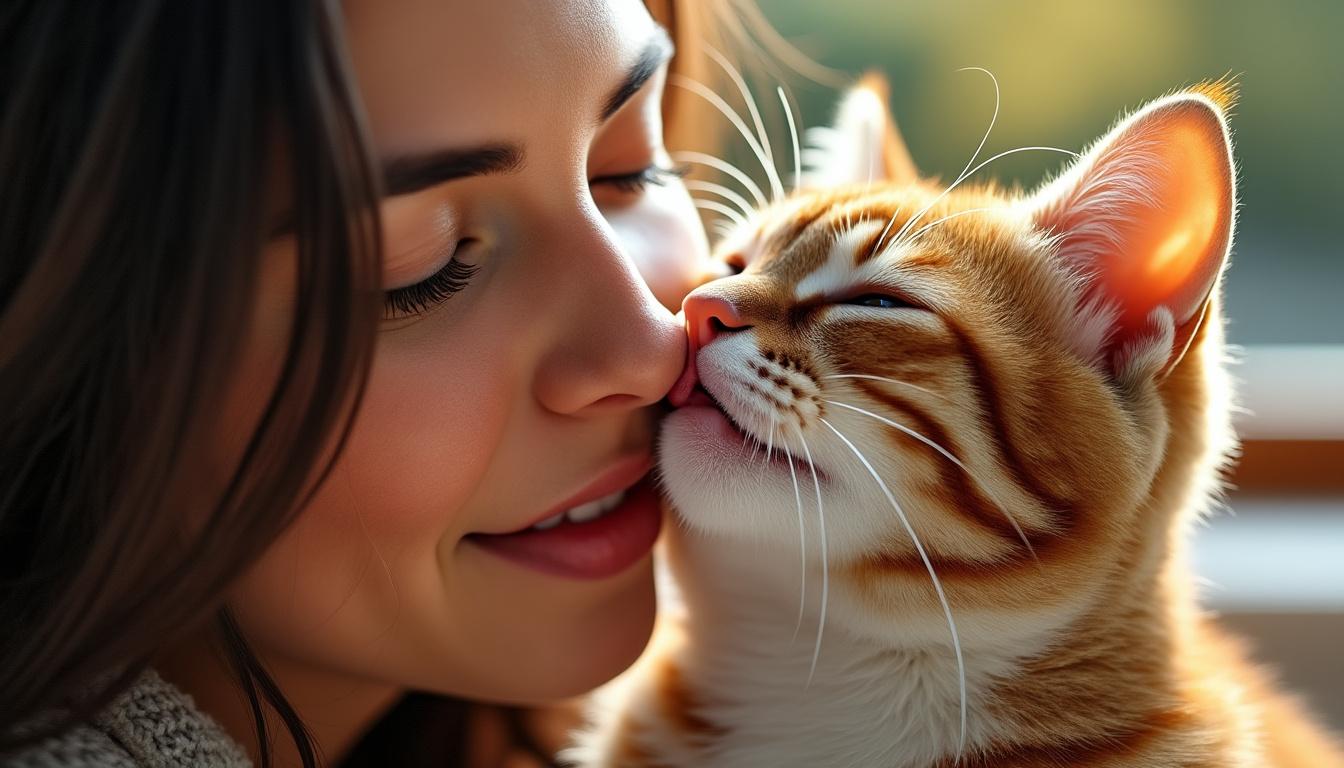Sharing your space with a cat can often lead to curious and puzzling behaviors that prompt a multitude of questions. One of the most common, and sometimes baffling, actions is the affectionate habit of licking. You might find your feline friend licking your hair or nuzzling your face, which raises an interesting question: why do cats engage in this seemingly odd behavior? Understanding the reasons behind this ritual can deepen your bond with your pet and enrich your interactions. In the depths of cat psychology, this act extends beyond simple instinct; it encompasses affection, territory marking, and even a cat’s unique way of communicating with their human companions.
From the perspective of feline affection to social bonding, the reasons your cat licks your face or hair can be diverse. Grooming is a vital part of cat behavior; it provides comfort, enhances social connections, and even serves as a form of communication. Through comprehension of this behavior, you can engage with your furry friend on a level that resonates with their instincts and needs. So let’s dive deeper to uncover the nuances behind these tender moments of cat affection. After all, knowing your cat’s motivations can bolster the cherished PawPrintLove you share.
Understanding Feline Grooming Behavior
The practice of grooming is essential to felines, as they spend a significant portion of their waking hours engaged in it. It can be surprising to learn that, on average, cats dedicate up to 50% of their waking hours to grooming themselves and, occasionally, their fellow furry companions. This self-care routine is not purely for hygiene; it’s deeply rooted in their instincts.
Mother cats initiate this behavior with their kittens almost immediately upon birth. They lick their newborns to clean them, eliminate lingering scents that might attract predators, and provide warmth and comfort. As the kittens grow, this licking continues, reinforcing their bond with their mother. But the love doesn’t stop there; cats also groom one another—a behavior known as allogrooming—which helps boost social bonds and indicates trust within their group. Essentially, grooming becomes a way for cats to express affection and maintain their social structure.
Allogrooming: A Sign of Trust and Affection
When your cat licks you, they are often mimicking the allogrooming behavior observed in their interactions with fellow cats. This behavior serves as a clear indicator that they trust you and view you as part of their social circle. The act of licking is especially directed at sensitive areas such as the face and neck, which are hard for cats to groom themselves. By licking your face or hair, they foster a deeper social connection, vying to pass along their scent and share a communal olfactory experience.
- 🔹 Trust: Your cat feels safe around you.
- 🔹 Affection: They’re exhibiting love through grooming.
- 🔹 Social Bonding: They’re marking you as one of their own.
Territory Marking Through Grooming
In addition to displaying affection, grooming serves as an important mechanism for cats to assert their territory. Cats possess scent glands in their mouths, particularly around the tongue and face. When they lick you, they are not only engaging in cleaning behavior but also marking you with their scent. This act can signify that they see you as part of their territory and are reaffirming your bond. It’s one of the most intimate gestures they can bestow upon a human companion.
| Motivation | Description |
|---|---|
| Affection | Expressing love and trust towards the owner. |
| Bonding | Creating and enhancing social connections. |
| Territory Marking | Identifying another member of their social circle. |

The Intriguing Taste and Texture Factor
Sometimes, the motivation behind your cat’s licking might be more than just social bonding or affection. Cats are naturally curious creatures, and they have an acute sense of smell and taste. They may be drawn to specific scents on your skin or hair, such as remnants of food, lotions, or even sweat after a long day. The sensation of salt on your skin, specifically, can be enticing. This is not to say that your cat needs salt; rather, they simply enjoy licking your skin for the taste and texture it offers.
This behavior can be particularly noticeable if you’ve recently eaten something messily, as flavorful scents might linger for hours. If you notice your cat licking you more after meals or when you’ve applied a new lotion, it could be an indication that they find those scents alluring. Moreover, some grooming products might mimic scents that cats love—like mint, which belongs to the same family as catnip. In those cases, they might find your hair quite irresistible!
Identifying Scent and Taste Preferences
To give you insights into their peculiar tastes, here’s a list of possible motivators:
- 🍲 Food Residue: Traces of meals can entice your cat.
- 🧴 Lotion and Products: Certain fragrances might pique their interest.
- 🏖️ Natural Salty Taste: Your skin’s natural saltiness is appealing.
However, it’s essential to consider the underlying factors. If you notice excessive licking or changes in behavior, it’s good practice to observe your cat closely. While being enamored with your taste or scent is normal, any drastic behavioral shifts should be discussed with a vet.
When Licking Becomes a Concern
While a little face-licking is generally harmless and often quite cute, it’s important to be aware of scenarios where it could indicate stress or anxiety. A sudden increase in licking behavior might point to underlying health issues or discomfort. If your cat’s grooming has escalated to the point where they’re obsessively licking other areas of their body, it may suggest a need for a vet visit.
Common Causes of Excessive Grooming
Understanding when to be concerned about licking behavior is crucial. Here are several potential causes for excessive grooming:
- 🌿 Parasites: Fleas, mites, or other parasites can irritate the skin.
- 💔 Stress and Anxiety: Changes in environment can cause excessive licking.
- 🍵 Medical Issues: Conditions such as allergies or infections may prompt their licking behavior.
Recognizing the Signs
In certain cases, make sure to look for the following signs of excessive grooming:
| Signs of Concern | Description |
|---|---|
| Overgrooming | Excessive licking can lead to bald patches or sore skin. |
| Behavior Changes | Increased hiding or displaying signs of anxiety or stress. |
| Time Spent Grooming | Spending unusually long periods licking themselves or you. |

How to Manage Your Cat’s Grooming Behavior
While it’s heartwarming to receive affection through licking, you may want to manage this behavior, especially if it happens excessively. Here are strategies to adopt that maintain the bond while redirecting the behavior:
Redirecting Attention Effectively
One effective way to manage your cat’s face-licking behavior is through distraction:
- 🎾 Interactive Toys: Engage your cat with toys during moments of licking.
- 🐾 Playtime: Schedule regular play sessions to fulfill their exercise needs.
- 🥳 Redirect Rewarding Behavior: Encourage your cat to rub against you instead of licking.
Behavioral Modification Techniques
Implementing consistent behavioral strategies is essential. Here are some tips:
- 🚫 Avoid Punishment: Don’t reprimand licking; it could elevate anxiety levels.
- 💖 Positive Reinforcement: Reward alternative behaviors like playing.
- 🥅 Environment Enrichment: Provide scratching posts or climbing areas to keep them entertained.
Seeking Professional Advice
Consider consulting with a veterinarian if the licking persists or worsens. They can assess your cat’s overall health and help devise strategies tailored to your feline friend.
| Management Technique | Description |
|---|---|
| Redirecting Attention | Use toys to focus their energy away from licking. |
| Behavioral Strategies | Positive reinforcement for alternate actions instead of licking. |
| Consultation | Talk to your vet if lick behavior exhibits negative changes. |
Why does my cat lick my hair after I shower?
Cats may lick your hair post-shower to re-establish their scent or simply because they are attracted to the smells of your hair products.
Is it safe for my cat to lick my face?
Generally, if no harmful substances are present on your face, it’s safe for your cat to lick you. However, ensure your skin products are non-toxic to pets.
What does it mean if my cat gives me a soft bite after licking?
A gentle bite, commonly known as a love bite, usually indicates playful affection from your cat and is nothing to worry about.
Should I discourage my cat from licking my face?
Whether or not to discourage this behavior depends on your comfort. If excessive, consider redirecting it to healthier outlets.
What should I do if my cat licks me excessively?
Monitor their behavior and consult a vet if it becomes excessive or if you observe any signs of distress.

